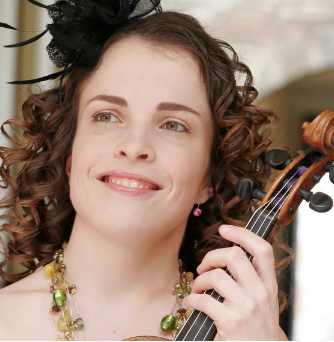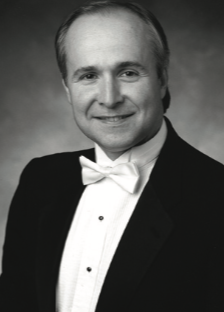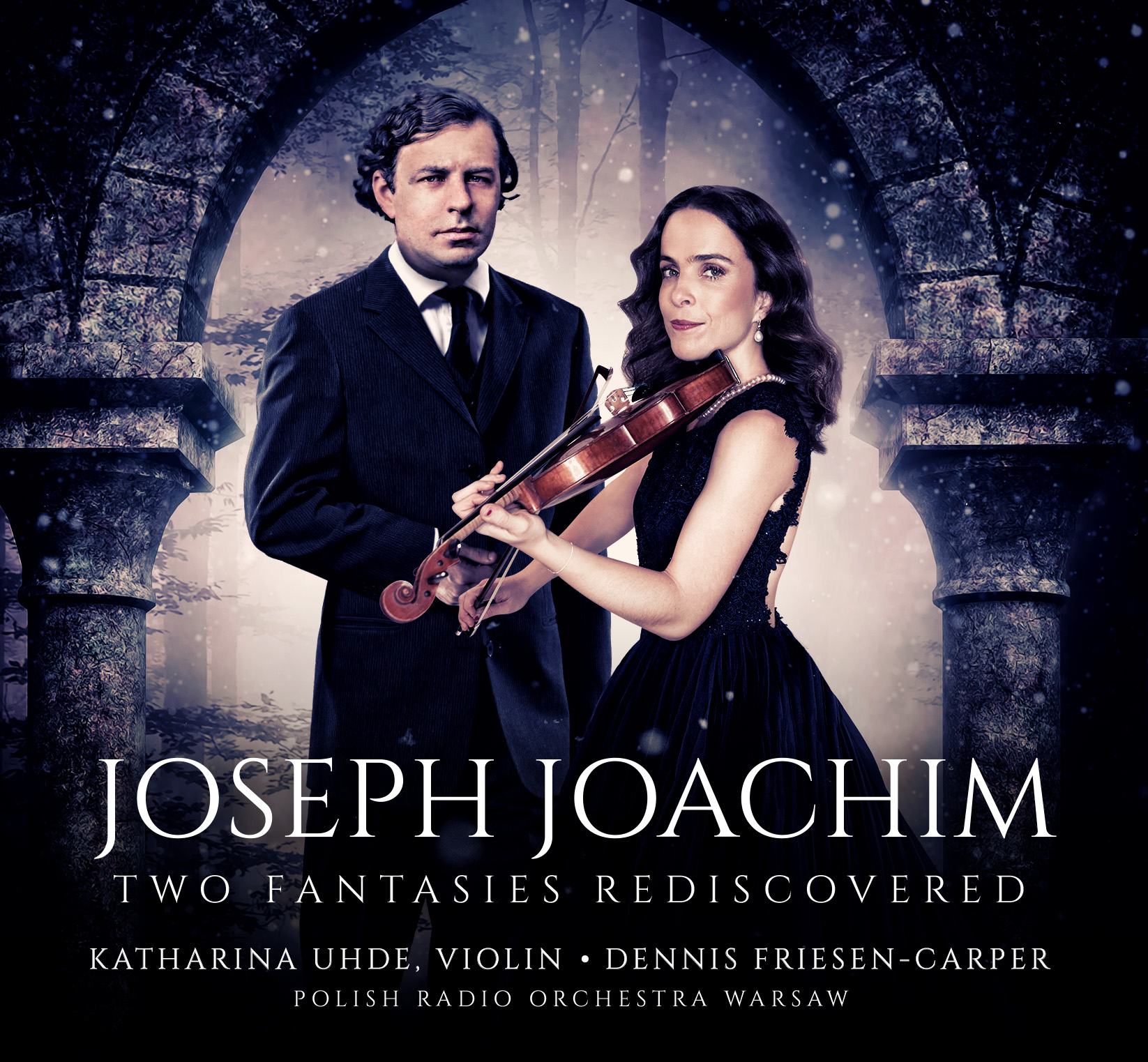
Fine Classical, Instrumental, and Specialty Recordings
Label: Soundset Recordings Item Number: SR1122 Format: CD Year Recorded: 2020 Joseph Joachim: Two Fantasies Rediscovered Katharina Uhde Dennis Friesen-Carper - Conductor Polish Radio Orchestra Warsaw
Katharina Uhde  Katharina Uhde, Associate Professor of violin and musicology at Valparaiso University (Indiana), is an internationally acclaimed violinist and musicologist. She is the author of The Music of Joseph Joachim (Boydell & Brewer, 2018). She holds a Doctorate of Musical Arts (DMA) degree in violin from the University of Michigan and a PhD in Musicology from Duke University. As a soloist, quartet and piano trio member she has won first prizes in international competitions in Czech Republic and Germany. She has also won the 2004 Concerto Competition of the University of Michigan, where she studied with the support of a Fulbright grant. She has released a CD Brasilianische Kammermusik and several online videos with world-renowned pianist Bruno Canino, with whom she performed the Beethoven cycle in 2017. Uhde just recorded a full-length CD with virtuoso works for violin and orchestra by Joseph Joachim, with the acclaimed Polish Radio Orchestra Warsaw. The live recording of the Fantasy on Irish Themes on the present CD was recorded during a concert on October 29 with the same orchestra. Uhde has also just released a Bärenreiter edition with works by Joachim, which she has performed with orchestra in Ann Arbor (2018), Valparaiso, IN (2018), China (May 2019), Baden-Baden (July 2019), and in Warsaw (October 2019). Uhde has appeared as a soloist with the Sinfonia Varsovia, the Goettinger Musikfreunde Orchestra, the Marburg University Orchestra, the UFRN Orchestra Natal (Brazil), and the Belgrade University Orchestra. As a violin soloist, she has worked with conductors Kenneth Kiesler, Volker Schmidt-Gertenbach, and Pavel Baleff. Uhde has co-organized a bi-lingual conference in April 2020, Joseph Joachim: Identitäten/Identities (Karlsruhe, Germany), for which she received funding from the Fritz Thyssen Foundation. Dennis Friesen-Carper - Conductor  Dennis Friesen-Carper has appeared as conductor, composer, and per- former throughout Europe, North America, and Asia, including Chicago’s Orchestra Hall, Cleveland’s Severance Hall, Carnegie Hall in New York, the Grand Theatres of Shanghai, Wuhan, Qingdao, and the new Central Conservatory Beijing Concert and Opera Hall. Former Music Director for the Pasadena Philharmonic Orchestra and Chorus, and Indiana Opera North, his guest conducting appearances include the Jiangsu and Zhejiang Symphonies in China, South Bend, DuPage, Elkhart Symphonies, and Lake Superior Chamber Orchestra in the US, and the Polish Radio Orchestra Warsaw, with upcoming engagements in Buenos Aires and Hangzhou. He has fulfilled commissions for the Houston Symphony, Tucson Symphony, Zhejiang Symphony and Symphony Chorus, Houston Chamber Singers, South Bend Symphony, Southwest Michigan Symphony, Lake Superior Chamber Orchestra, and served as Composer-in-Residence for the Northwest Indiana Symphony, Lutheran Music Program, and Valparaiso University. His works have been published by Santa Barbara Music Publishers, Augsburg Fortress, Faith and Life Press, and recorded by Minnesota Public Radio, Platshon, Valpo ArtsMedia, and Pro Arte. His oratorio Innocents, setting a libretto by Walter Wangerin, Jr., was awarded the 2010 Arlin G. Meyer Prize. Dr. Friesen-Carper is Senior Research Professor at Valparaiso University, where he conducted and taught conducting, composition, and improvisation. Artistic Director for the Great Lakes Confucius Institute Music Festival, he has collaborated with Chinese musicians and ensembles for over twenty years. Polish Radio Orchestra Warsaw Produced by: Marcin Domzal
Recording venue: The Witold Lutoslawski Concert Studio of Polish Radio
Photo restoration & color (J. Joachim portrait): Chris Whitehouse photography
Photography: Jaga Hupalo, Born To Create Graphic design: Kerry Jesberger, Aero Gallerie Booklet interior: Norbert Stölzel
Label: Soundset Recordings Item Number: SR1122 Format: CD Year Recorded: 2020 During World War II, valuable scores and books from various Berlin libraries were evacuated to Eastern Europe, including Joachim’s Fantasies on Irish and Hungarian Themes, bound in the same autograph manuscript and considered lost since 1907. The pieces remained unknown until 2016, when Katharina Uhde rediscovered them. Austro-Hungarian violinist Joseph Joachim (1831-1907) maintains his reputation as a fine violinist and quartet leader who eschewed virtuosity for its own sake, and as the esteemed friend and musical confidant of composer Johannes Brahms. As a composer, Joachim has long enjoyed the singular success of his 1857 Hungarian Concerto in D Minor, Op. 11. In 2016, however, Katharina Uhde, a specialist in the work of Joachim, rediscovered two violin fantasias from the earlier 1850s, of which his Irish – really, Scottish – Fantasy (1852) represents his first virtuoso music for violin and orchestra. Uhde edited this and the 1850 Hungarian Fantasy in 2018, and subsequently she has recorded these two works for their debut. It seems that Scotland rather than Ireland supplied Joachim with tunes for his Fantasy on Irish Themes in D Minor of 1852. The melodies 'John Anderson My Joe' and “The Blue Bells of Scotland” illuminate the progression, while an aria, “Nella fatal di Rimini” from Donizetti’s Lucrezia Borgia, sneaks in an allusion mid-way, in B Minor. Some scholars cite Mendelssohn as the inspiration for the stentorian chords early, resembling the opening of the oratorio Elijah. The demands of the piece, besides having to make smooth transitions in the flow, lie in the many double-stopped chords from violinist Uhde as well as considerable bariolage technique. The last four minutes enjoy a bright fervor from all participants. Easy and gracious through most of its meanderings, the work will appeal to those who already favor the more affecting suite by Max Bruch that does not bear a misnomer in the title. The earlier Fantasy on Hungarian Themes in A Minor (1846-50) conforms to the penchant for verbunkos repertory that inhabits the works of Liszt, Brahms, and Hubay. The syntax demands syncopes, augmented seconds, two-bar cadences, and una corda filigree on the D and G strings. Of note, this piece had a performance in Weimar 19 October 1850 under Franz Liszt. The opening of the music, a stately, rather somber march, may reflect the politics of the times, the conflict between Austria and Hungary, which affected Joachim’s own sense of identity. In eight definable sections, the work conforms to a pattern established by Moravian composer Heinrich Wilhelm Ernst in his Otello Fantasy of 1837. Set as a series of Airs variés, the music proceeds in a seamless fashion according to lights provided by contemporaries Vieuxtemps David, and Sivori, and the later Dancla. As the music progresses, the textures thicken and the speed increases, and the clashing tempos infuse the work with a nervous excitement. The upward suasion of the piece moves into sprightly A Major that hearkens to a Hungary free of outside, Croatian and Bohemian, political agitation. The Romance in B-flat Major, Op. 2, No. 1 (1849) has a dedication to Moritz Hauptmann, the Leipzig composition teacher. Robert Schumann called the work sehr merkwürdig, curiously worth remembering. The arrangement with orchestra we hear Joachim made in 1900. Essentially pastoral in nature, the music moves into a more ominous G Minor and then to the sun once more, in D Major. The sad episode does return but in G Major before the music concludes, dolce. The present recording marks the debut of the arrangement with orchestra. Joachim composed his Notturno in 1874, but withheld the piece for others’ performance, having labeled it “a somewhat monotonous Adagio of ten minutes’ length which would hardly interest an audience.” The influence of the scoring the Brahms A Major Serenade, Op. 16 bears on the dark tenor of the work and its lack of tutti strings. Like Brahms (and Schumann), Joachim invests a personal motto into the progress F#-A-E, that in Brahms signifies frei aber einsam, free but lonely. Joachim proves no less fond of G#-E-A, a cypher for an inamorata, Gisela von Arnim, so the slur lines of legato phrasing carry an especial pathos. The official dedication of the work went to Gabriele von Wendheim, Joachim’s student in Hanover from 1858 onward. This performance, lasting a bit under ten minutes, is not so monotonous as the finicky composer imagined. - Gary Lemco, Audiophile Audition | |||||||||||||||||||||||||||||||||

 Follow Us on Twitter
Follow Us on Twitter Follow Us on Instagram
Follow Us on Instagram Visit Our Partner Soundset Recordings
Visit Our Partner Soundset Recordings